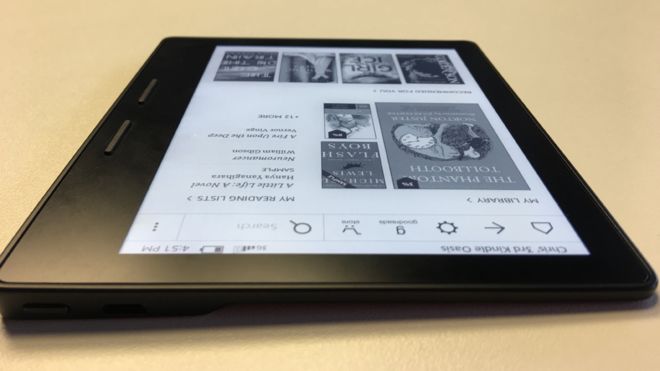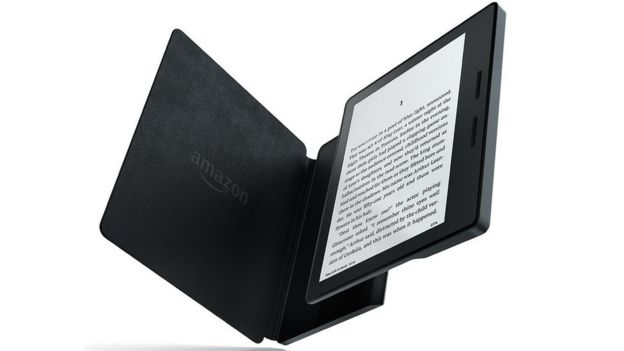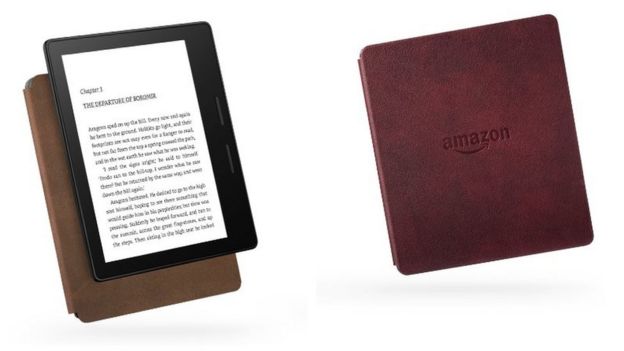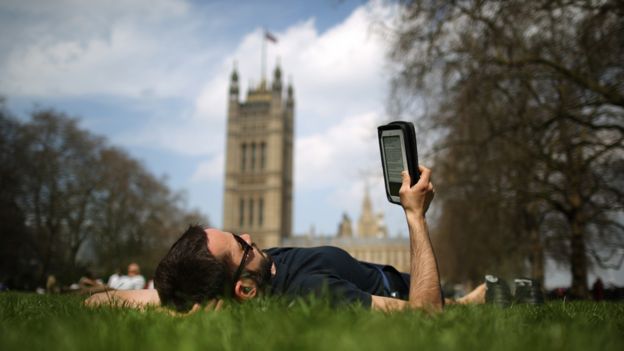
It has a good claim to being the most daring and innovative technology company of the last 20 years. It has launched at least two world-changing businesses - an online retailer of breathtaking scale and efficiency and a cloud computing service that has changed the way thousands of businesses work. But why on Earth is Amazon launching another Kindle, and who on Earth is going to pay £270 for it?
That was what came into my head as a group of Amazon executives showed me their latest e-reader this week. I'd come to the warehouse in Hoxton - London's Hipster Central, where Amazon's fashion division is based - on the promise of learning about the tech firm's next giant leap forward. I'd rather hoped to hear that the Echo, a fascinating product which puts a virtual assistant inside a speaker, was coming to the UK.Instead I am ushered into a library with a white table where the entire history of the Kindle is laid out, from the 2007 original, a chunky slab with a keyboard, to the slimline touchscreen Voyage. And then the new product, the Oasis is brought out.
 Image copyright Amazon
Image copyright Amazon "Our goal is to get the device out of the way and just give you the content.. It's the best reading device we have ever made." The Wigan-born designer of all of Amazon's devices makes an eloquent case for the technology and craftsmanship which has gone into building the Oasis.
He raves about the back of the e-ink display: "200 microns - thinner than a sheet of tin foil" and about the "matrix of components" that makes for the perfect reading experience.
But then I come to the price - £270 (ok, £269.99) for an e-reader!
You can get a very nice illuminated touchscreen Kobo for £139, and Amazon's budget version of the Kindle costs just £59.99. And when I canvass opinions amongst colleagues I got this: "Blooming heck" (I paraphrase), "£270 just to read a book?" Then: "Think of all the books I could buy for that."
 Image copyright Amazon
Image copyright Amazon These days, you can read Kindle books on all sorts of devices, so why buy something separate?
Back at the Hoxton warehouse, the Amazon team concedes that there is a smaller market for e-readers than smartphones, but insists there is still a demand for Kindles, and even for a luxury-priced version like the Oasis. "This isn't going to be our highest volume device, we know that," says Jorrit Van der Meulen, who runs the devices business in Europe. "But for the people who buy it, you're absolutely not going to be able to prise it out of their hands."
The other question is whether the demand for digital books and hence for e-readers has now peaked. The Bookseller reports that UK sales of digital books by the five biggest publishers actually shrank in 2015, although Amazon is keen to stress that self-publishing on Kindle is soaring, and that it's handing more royalties direct to authors.
And while Waterstones' boss James Daunt described sales of Kindles as "pitiful" last October when he removed them from the shelves in his stores, Amazon tells me "the e-reader business continues to grow".
What is clear is that selling digital books and e-readers is now just a small part of this technology behemoth's activities and likely to get less significant in the future. Why then the big hoopla over the Kindle Oasis, with Jeff Bezos teasing today's big announcement in a tweet last week? Perhaps because the Kindle was Amazon's first and still most successful venture into hardware, and the signal that it was much more than just a very skilled online retailer.
The first version sold out within two hours and instantly made Amazon the leader in the move to digital publishing. Later gadgets - tablets, TV streaming devices, and the ill-fated phone - have had a more mixed reception and have not had the same impact on their markets.
Or perhaps the hard-driving Mr Bezos is still just a little sentimental about books and reading. After all, they are the foundation on which his empire was built. "It's right at the core of our DNA, we started selling books," Van der Meulen admits. But he says this is not about the boss's attachment to the past: "He loves to read, he loves devices but this isn't anything for Jeff, this is years and years of focusing on our customers."
 Image copyright Getty Images
Image copyright Getty Images 













0 comments:
Post a Comment